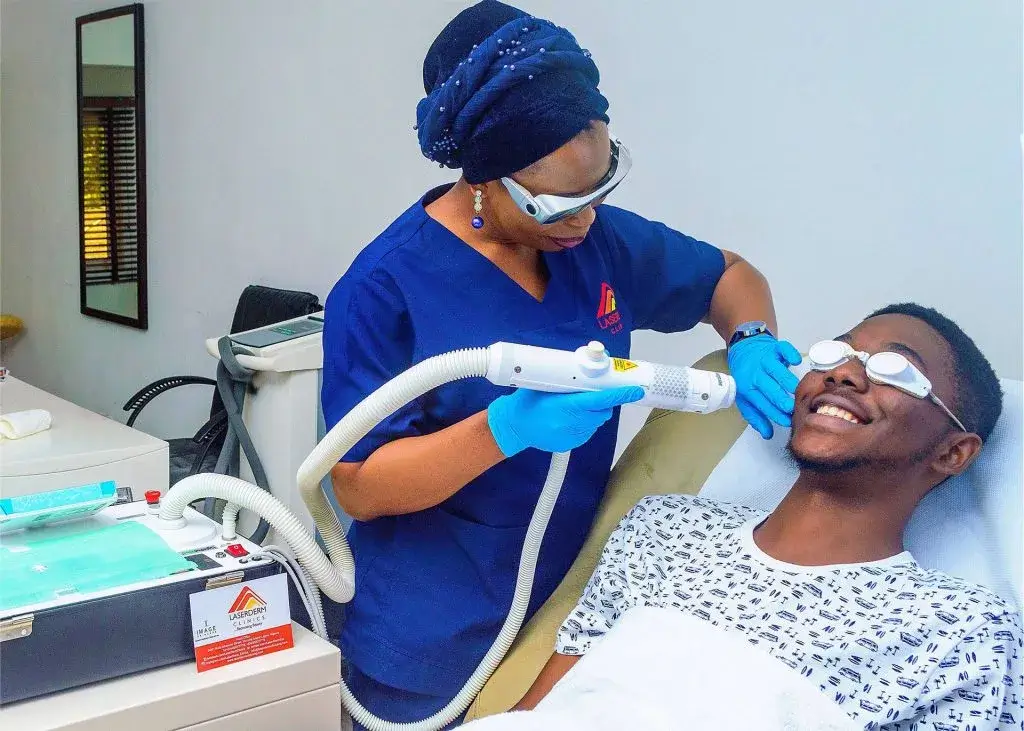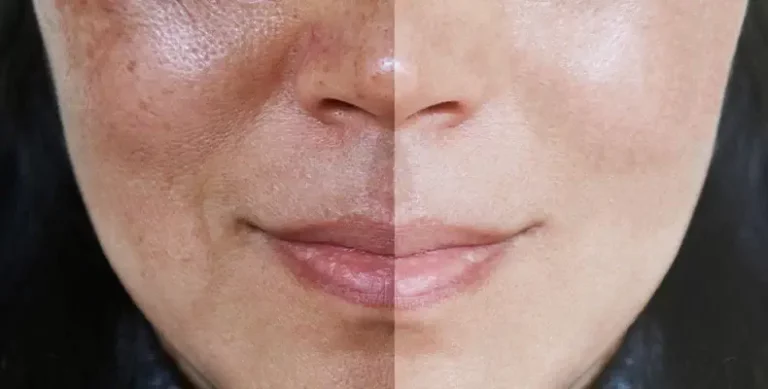What is the difference between Dermatologist and Skin Specialist
What is the difference between Dermatologist and Skin Specialist? This particular question has taken a lot of people to query, but this article will clear your confusion. As you know, our skin is one of the largest organs in our body that plays a vital role in protecting our general well-being.
This skin, however, needs to be taken care of; the fact that it faces a lot of shielding from environmental factors can lead to its damage. Prior to these, the quest for healthy, glowing, and radiant skin has led to an increase in seeking professional guidance; that is where dermatologist and skin specialist comes into play.
Both a dermatologist and a skin specialist play a common goal for the skin’s general well-being, but what differs between them? In this article, we are going to be looking at their differences and similarities and explore their educational backgrounds, areas of specialty, roles in the field, and scopes of practice.
As a skincare enthusiast, understanding what these professional stands for will help you make an informed decision on who to consult about your skincare and health.
Are these two professionals different? Let’s find out below!
Table of Contents
Who is a Dermatologist?
A dermatologist can be defined as a medical doctor who has expertise in diagnosing, treating, and preventing skin, hair, nail, and mucous membrane disorders/ conditions.
Dermatologists undergo extensive learning and medical training, with medical degree certifications that enable them to perform both medical and surgical solutions to skin disorders or diseases. They offer guidance on proper skincare and maintenance based on your skin type.

Dermatologists are experts when it comes to skin concerns and cosmetic procedures. They analyze your skin using proper instruments to achieve the best result. So, what makes them a dermatologist? They are dermatologists because they possess the following:
Education and Training
Dermatologists under proper medical school obtain either MDs or DOs to earn the required medical degree. After medical school, aspiring dermatologist receives residency training where they are fully trained in their specialization (skin, hair, nails, and mucous membrane).
This dermatology training may last for three to four years. They also obtain a year internship. So, dermatologists are medical doctors for an integumentary system, which comprises the skin and its appendages.
Licensing and Certification
As a dermatologist, your first certificate is your medical degree. They will also obtain board certifications through a recognized medical board in order to practice. One of the boards is the American Board of Dermatology.
Scope of Practice
Dermatologists are certified to diagnose and treat over 3,000 skin concerns, including skin cancer, psoriasis, fungal infection, acne, eczema, hair loss, nail disorders, etc.
They perform both surgical and cosmetic procedures, including Mohs surgery, laser therapy, microneedling, cryotherapy, etc. Dermatologists prescribe medications, including oral medication, injectable treatments, dermal fillers, and topical creams.
If you are seeking medical advice for skin, hair, nail, and mucous membrane conditions, dermatologists are the first point of contact for first-hand advice.
Read also: What is Hyperpigmentation
Who is a Skin Specialist
A skin specialist is a licensed and trained professional who specializes in non-medical skin treatment and cosmetic products. They often undergo specialized training to offer skincare treatments and advice on skin health and appearance.
Skin specialists are also known as estheticians, skin therapists, and cosmetologists. You often find them in beauty salons, spas, and skincare clinics, delivering cosmetic treatments, skin maintenance, and helping customers achieve their desired skin goals.

Education and certification requirements
A skin specialist often completes the required specialized training programs on skincare and esthetics. The duration of this program can vary depending on the location, but the main goal is to gain knowledge on skincare products, skincare techniques, and skincare consultation.
After obtaining the training, you must obtain successfully pass the licensing exam and obtain the required license. The license and certifications will certify you to practice in your various regions. You need to obtain this necessary training and license to be a skin specialist.
Scope of Practice
You must note that skin specialists do not provide medical skin treatment/ services. Skin Specialists, estheticians, and skincare professionals provide a wide range of non-medical skincare services and consultations.
Their scope of practice includes:
- Facial treatment: They perform various forms of professional skincare facials, including cleansing, exfoliation, steaming, extraction of blackheads and whiteheads, and the application of masks and moisturizers.
- Chemical peels: They offer chemical peel services, helping each client achieve an even skin tone using a suitable skin type chemical peel.
- Microdermabrasion: They are trained to deliver microdermabrasion tailoring to your skin type.
- Hair removal: Skin specialist offers services to remove unwanted facial or body hairs through waxing.
- Client consultation: Skin specialists consult with clients, assessing their skin and providing genuine advice to achieve their skincare goals tailored to their skin types.
- Spa treatment: They offer professional spa treatment, helping their clients reduce stress and relax.
Read akso: Effective Facial Treatment for Sensitive Skin
What is the difference between Dermatologist and Skin Specialist?

While these two professionals may sound alike, there are key differences that exist between them. Firstly, a dermatologist is a medical doctor specializing in skin and its appendages, while skin specialists are non-medical trained individuals specializing in the skin only.
Dermatologists diagnose and treat skin concerns and diseases, such as skin cancer, psoriasis, acne, eczema, fungal infection, hair loss, and nail disorders. They perform both surgical and cosmetic procedures and deliver first-hand medical advice on issues relating to skin.
However, a skin specialist only offers skin care treatments and advice on skin health and appearance. They do not offer medical advice or perform any surgical procedure. Skin specialists have no medical background; they only concentrate on enhancing the skin’s appearance, providing beauty and relaxation treatments.
Dermatologists are excellent choices for individuals seeking proper skin evaluation, treatment, and medical advice, while skin specialists are for people looking to improve their skin health and aesthetics in a non-medical context.
When to Choose a Dermatologist
It is advisable to know when to choose a dermatologist over a skincare professional. Dermatologists should be consulted in situations with medical concerns relating to skin, hair, nails, and mucous membranes.
Make it a point of duty to always consult with a dermatologist if you have any concerns about your skin health at early signs for proper management. Here are common conditions to choose a dermatologist;
- Severe skin conditions like eczema, acne, dermatitis, psoriasis, vitiligo, warts, etc.
- Suspicion of skin cancer
- Hair and scalp conditions
- Nail disorder
- Skin infection
- Dermatology and cosmetic procedures like skin biopsies, lesions, chemical peel, cryotherapy, micro-needling or laser therapy
You may also like to read: Best Chemical Peels for Hyperpigmentation on Black Skin
When to Consult a Skin Specialist
Consulting a skin specialist in some situations is worth it, especially situations relating to beauty routines, skincare maintenance, and cosmetic enhancement that do not involve medical procedures. Here are skin concerns to consult with your skin specialist:
- Performing Facial treatments
- Treatment of mild skin concerns such as dry skin, uneven skin tone, hyperpigmentation, signs of aging, etc.
- Skin maintenance such as cleansing, exfoliating, waxing, hair removal, etc.
- Skincare product recommendation
- Relaxation treatment comprising of all skin massage and spa treatment
- Acne and blemish management
- Pro-makeup application
- Specialize skincare advice.
Conclusion
In the world of skincare, understanding the distinctive difference between a dermatologist and a skin specialist will help you make an informed decision in choosing the professional best suited for your skin concerns.
A dermatologist is a medical doctor specializing in skin, hair, nails, and mucous membranes. It would help if you opted for a dermatologist for medical-required skin conditions. However, a skin [specialist is a go-to for your beauty treatments and skincare enhancements that do not require a medical diagnosis.
In the pursuit of a radiant skin appearance, both a dermatologist and a skin specialist play a crucial role in skin enhancement. So, understanding their scope of practice will help you choose the best professional. Was this article helpful? Leave a comment below.
Glow right!








